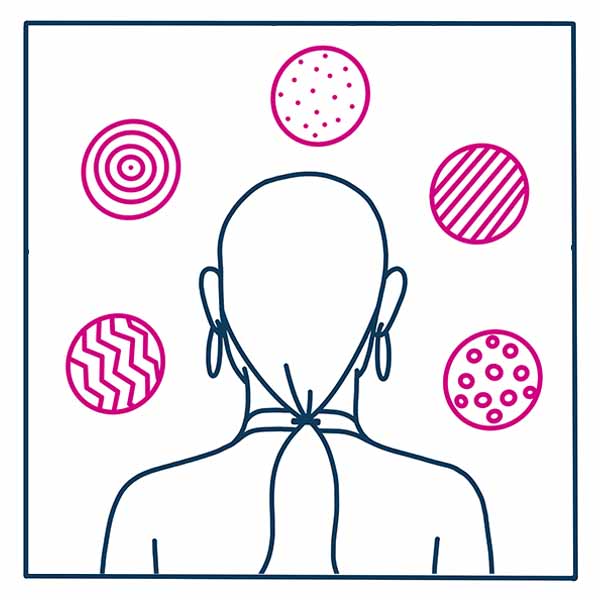Physical quotient, also known as physical intelligence, is an important aspect of personal effectiveness, but most people don’t really understand what it is or how they can manage it. Unlike its cousin, emotional intelligence, it’s less frequently talked about and researched. This article will explain the concept and give you the tools and knowledge to improve your own physical intelligence.
Physical quotient: what is it?
Dr. Howard Gardner, professor of education at Harvard University, came up with seven types of intelligence. One of which is Bodily-Kinesthetic Intelligence. This is our ability to exert fine motor control, to move our body as one and to be aware of where we are in space.
For some, physical quotient is a more complex extension of this concept. For consultant Robert Oates, physical quotient is a “function of your self-awareness at the most basic level. It’s a function of how well you are attuned to your physical wellbeing. how you treat your mind, body and spirit.”
But it’s more than just self-awareness. It’s about actively managing our physiology. This aligns it with emotional intelligence, which is about actively managing and working with, rather than against, our emotions.
Physical intelligence is ultimately concerned with understanding our body, creating a positive relationship between our mind and body, actively working with our physiology to create better conditions for our body to thrive and ensuring we take steps to minimise harm to our body.
Physical intelligence: why is it important?
Every second of the day, we are bombarded with hormones, emotions, physical and emotional stimuli, atmospheric conditions and other variables that all come together to influence what we feel and how we experience the world.
Having confidence in our body and our ability to perform resiliently is crucial.
When our experience of the world is negative, it limits our ability to thrive as human beings, by impacting things like decision-making, our attitude to interpersonal relationships and our ability to concentrate. Therefore we need to actively manage this bombardment to shape our experience of the world to be positive.
Emotional intelligence helps us manage our emotional experience of the world. Physical intelligence helps us to both manage the effects of our physiology on our experience of the world and actively promote healthy physiology to improve our experience of the world.
Physical quotient: put some tools in your tool chest
Understanding the duality of mental and physical fatigue
There’s a condition described by knowledge workers that doesn’t have a name. It happens after an extremely mentally stressful day, often in front of a computer, after which your mind feels frazzled and irritable. However, your body feels wracked with unspent energy.
This means your mind and body aren’t aligned, leading to an energy imbalance. Making sure you correct this imbalance is important, as it can be quite draining to tolerate, especially in the long-term.
A core part of physical intelligence is identifying this feeling and being able to address it with exercise – read on for more.
The importance of exercise
When we exercise, we release endorphins, which are structurally similar to morphine and activate the same pain-killing receptors in our brain, as well as promoting a general feeling of bodily euphoria.
The real skill is in finding an exercise that is suitable in terms of intensity and accessibility so that it becomes routine. HR can offer corporate gym memberships but gyms aren’t right for everyone, so offering guidance on how people can integrate suitable exercise into their daily lives is key.
Exercise is also important because it improves our endurance and stamina and therefore helps ensure our body is able to help us meet our goals.
Rest and rehabilitate to develop a stronger relationship with your body
It’s amazing how much even minor physical ailments can affect everything from our mood to our ability to enjoy life. And there are knock-on effects too.
Back pain makes people cautious, leading them to move less, which limits flexibility. And sitting too long in front of a computer can tighten hip flexors and weaken gluteal muscles, making back pain worse, leading to lack of sleep at night due to the irritation.
Ultimately, being aware of the physical ailments that break down the positive relationship we have with our body and taking steps to rehabilitate them is important to developing and nurturing our physical intelligence. Having confidence in our body and our ability to perform resiliently is crucial. This point is, of course, linked to exercise.
Getting an appropriate amount of sleep
Lack of sleep has well-evidenced negative effects on the body, including reducing the quality of the immune system, making you more susceptible to illness. It also reduces your body’s ability to send satiety signals, leading to overeating, as well as affecting your ability to balance.
Chronic lack of sleep also puts you at a greater risk of serious conditions down the line, including heart disease and diabetes.
It’s important to know the general conditions that promote good sleep, such as avoiding caffeine in the evening, using lamp light rather than bright LEDs and not eating too close to bedtime, as well as more personal choices, such as whether a firm or soft mattress is preferable.
What do you feed the machine?
Eating healthily is a fundamental part of physical intelligence. After all, a machine only functions as well as the quality of the fuel you feed it.
Avoiding refined sugars, limiting caffeine, stocking up on fruits and vegetables and eating an appropriate amount of protein are all good choices. The other side is matching what we eat with our energy needs, a cornerstone of effectiveness energy management at work.
When our experience of the world is negative, it limits our ability to thrive as human beings.
Calorie has unfortunately become a dirty word, but healthy calories are essential to functioning effectively. Knowing what our energy needs are and making sure we take in an appropriate number of calories helps us have confidence in our body’s ability to perform.
Self-awareness through mindfulness
Mindfulness helps in many ways but one is being more accepting of the way our body feels, rather than resisting negative feelings and therefore using up energy trying to fight our experience of the world. The ‘body scan’ technique is a good way to become more accustomed to our bodily sensations and accept them non-judgmentally.







